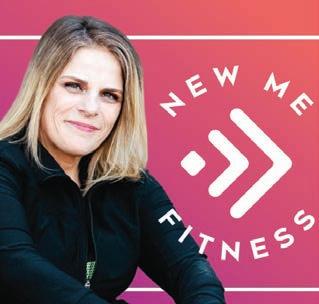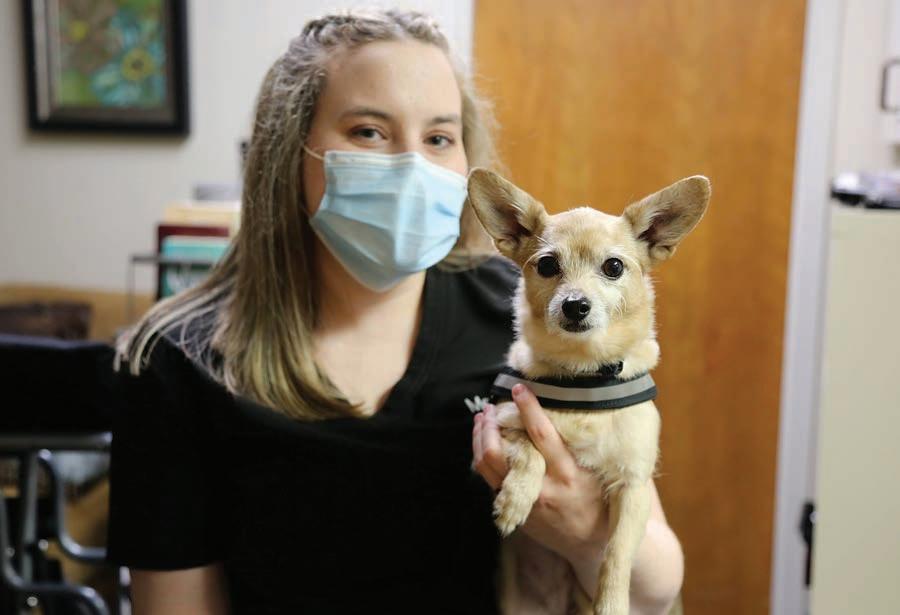
15 minute read
Honeybun on the job
Little Dog Brings Big Relief
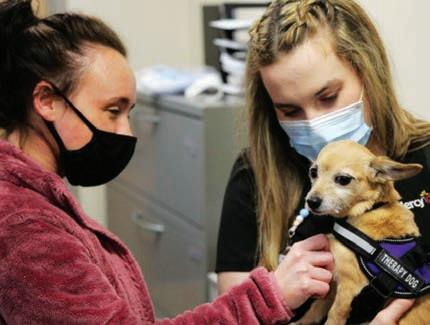
If you don’t leave your job knowing you’ve improved someone’s day, you don’t have as good a job as Faith Walker, a Social Work student at the University of Arkansas - Fort Smith.
What Faith has is not so much a job as a volunteer vocation, sharing Honeybun, her emotional support animal, with people who need a little boost to get through the day.
“There is no visit that goes by that I don’t hear someone say, ‘I was having a really bad day, and now it’s so much better,’” she said.
As someone pursuing a career in social work, Faith fi nds her work with Honeybun gives her a chance to see what the right kind of support can do for people facing critical life challenges. She has taken Honeybun to visit hospice patients who she believes fi nd great solace in the visit. While Honeybun visits the patient, Faith can talk with family members, supporting them.
Honeybun has a giant heart in a tiny body. Faith has had the long-hair chihuahua since the pup was six weeks old. Faith, who has “pretty bad anxiety,” worked with Honeybun to have her registered as an emotional support animal. That way, she could live with Faith in the dorms, which was a win for everyone.
“She loved seeing the college kids, and she provided a lot of anxiety relief for me,” Faith said. Of course, the students loved the 7-pound bundle of happiness.
Now Faith likes taking her to the library during fi nals to give students a study break.
“Although the joy is only momentary, it is one moment when you can breathe and forget about whatever you are studying for,” she said.
Honeybun is also approved by the Alliance of Therapy Dogs, a nationally recognized therapy dog organization.
One of Faith’s favorite memories involves a hospice patient.
“One elderly lady in hospice had taken a very quick road and was on her way to Heaven,” she remembered. “I asked if she
would like Honeybun to lie next to her. She said yes and lit up when I placed Honeybun in the bed. Honeybun quickly snuggled in with this lovely lady. I remember visiting with her family while Honeybun snuggled. Sadly, she made it up to Jesus just a few days after I knew her.”
For Faith, it’s a circle completed.
“Honeybun has helped me through my darkest days, and being able to share that with other people is an amazing experience,” she said.

HONEYBUN: Faith Walker likes to take her therapy dog, Honeybun, to people who are facing challenges. The dog never fails to bring people some relief from their troubles.
We asked members of the broad UAFS community what they thought makes the difference, what they makes the university special to them. There are as many different insights as there are people. The university experience is unique.
WHAT MAKES THE
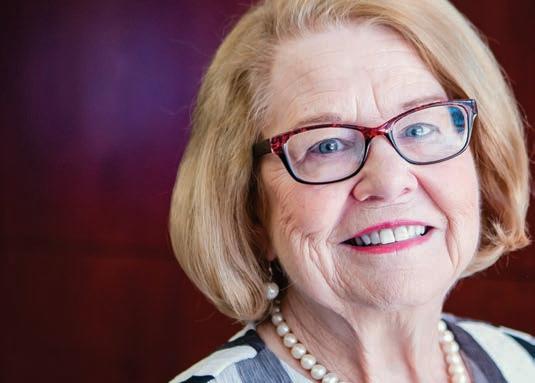
“I wish more people knew about the Western Arkansas Technical Center, an almost 20-year partnership between UAFS and more than 20 area high schools. High school students, on the UAFS campus or at the PEAK Innovation Center, can earn concurrent credit toward their high school diploma and a professional certification or college degree. Students can earn concurrent credits at no cost to them or their parents, allowing them to earn college credits at no charge.”
CATHY WILLIAMS, UAFS Board of Visitors
DIFFERENCE
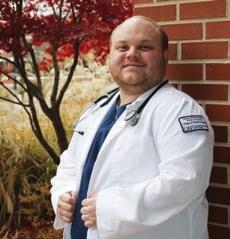
“Biology Professor Dr. (David) McClellan – I could reach out to him right now if I needed something. Dr. (Paula) Julian is just as supportive. She works to shape and mold her students into what she believes will make them successful. She is always looking for ways to strengthen the program and is always available for questions or anything we needed.”
DONAVON BALDRIDGE, Biology, ’16, Accelerated BSN, 2020 Cardiovascular nurse at Northeastern Health System, Tahlequah Student at Chamberlain University, family nurse practitioner


DIFFERENCE

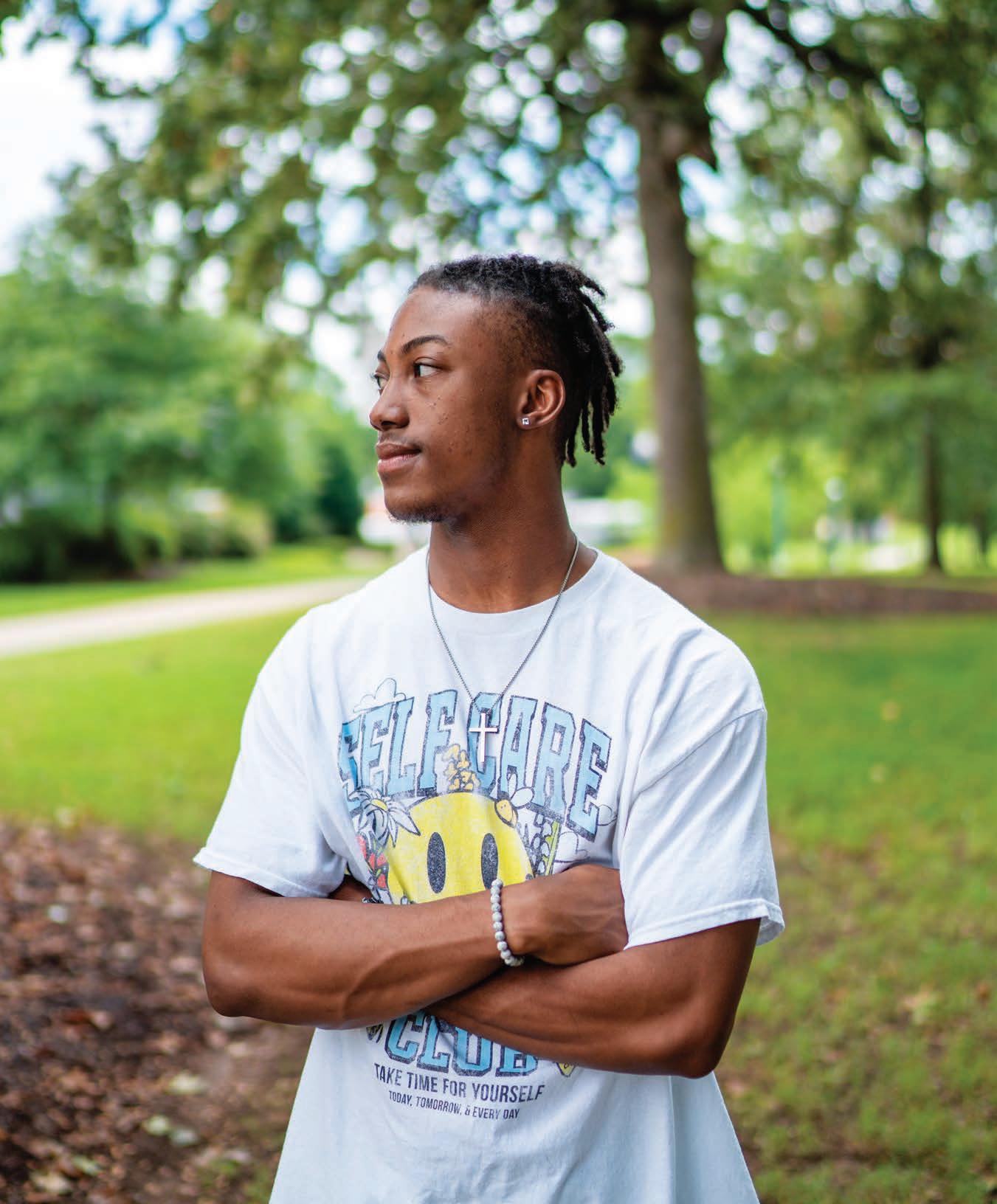
JOHNATHAN BREWER Sophomore Media Communication
“I started at UAFS when I was in high school, earning college credits through the WATC program. I knew the university had a lot to offer, but I didn’t how many leadership opportunities I would have. Because I chose to be involved in student organizations, I traveled across the country to special conferences, earned leadership roles, and learned important skills outside of the classroom.”
JASMINE SMITH, ’16 Director of Alumni Engagement & Annual Giving
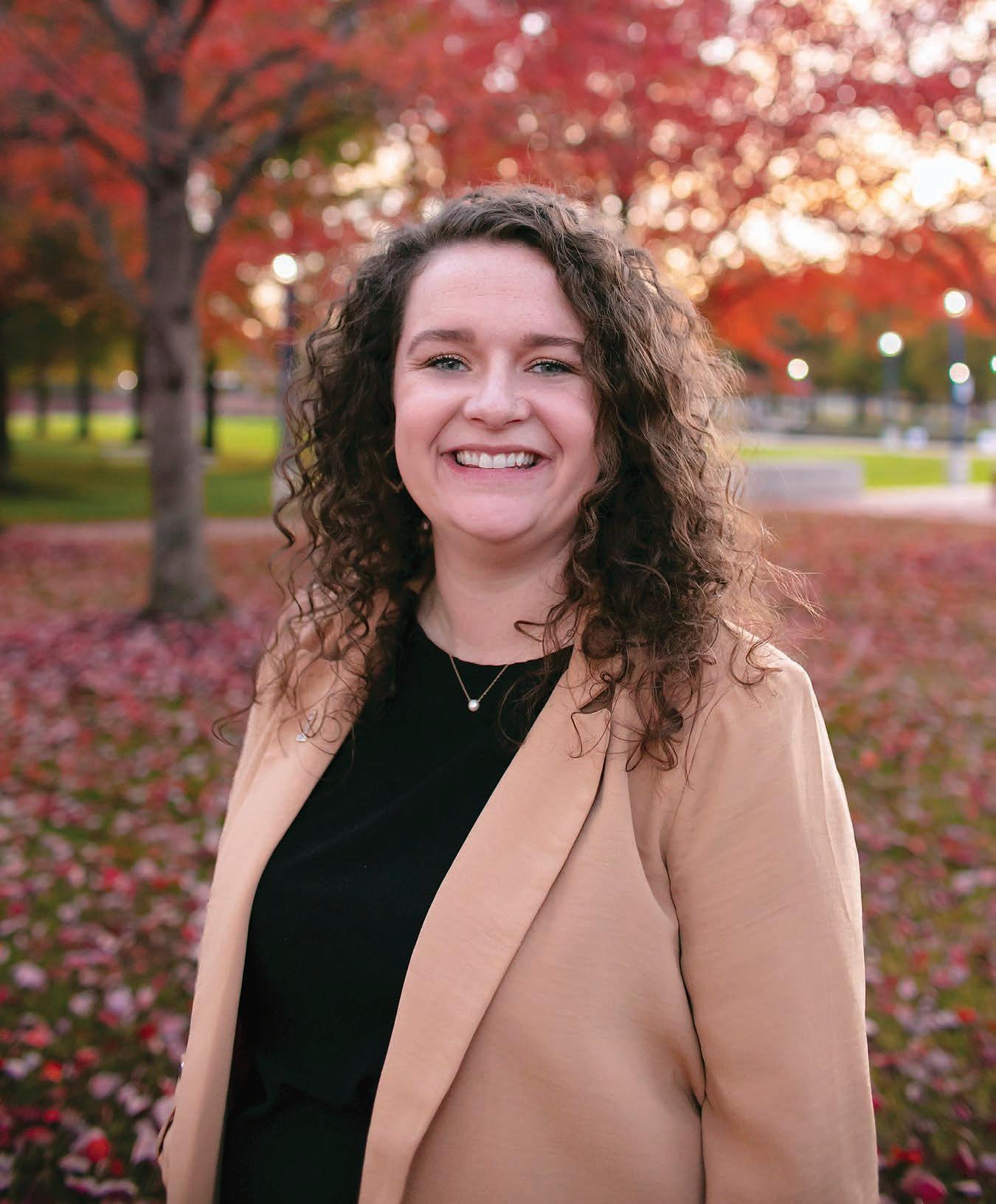
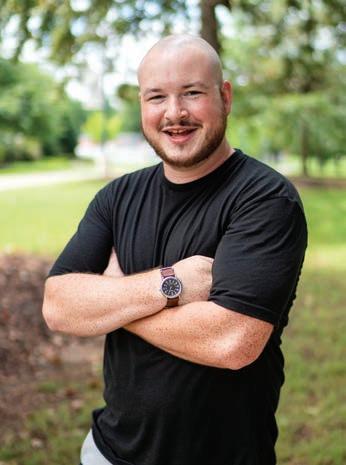
ELLIOT NEMETH Senior, Business Administration Concentrations in Consumer Marketing, Small Business Management
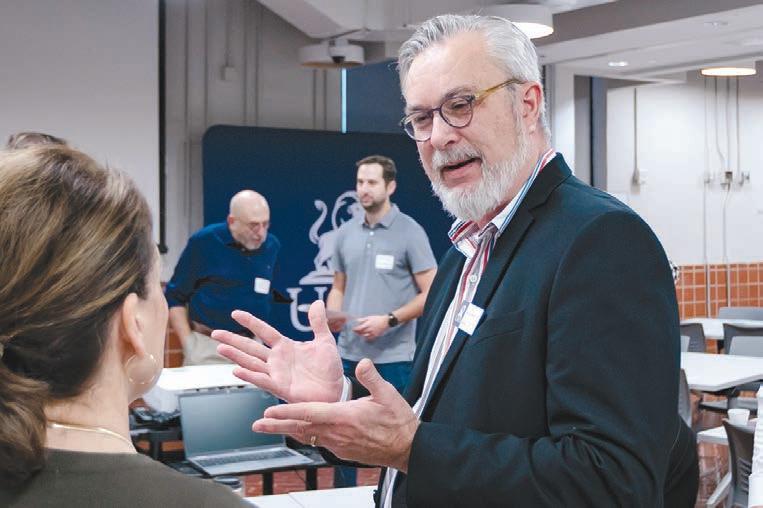
“UAFS students are driven to succeed through dedication and hard work. They go to school, and most hold down demanding jobs. Many have family obligations or have gone back to school in their 20s, 30s, or 40s with the burdens that come with age. The diversity of everyone’s unique experience at UAFS brings more to our campus than any textbook. ”
BILL SABO, Regional Director, Arkansas Small Business and Technology Development Center
WHAT MAKES THE DIFFERENCE
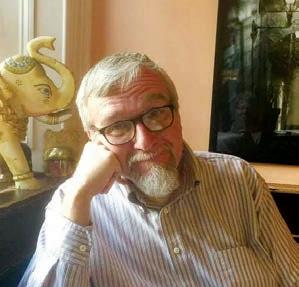
DENNIS SILER Director, Myles Friedman Honors Program
MAYMESTER:
Students toured the Jeanie Johnston in Dublin, Ireland, and learned about immigrants who sailed to the U.S. during famine in the 19th century.

Home & Abroad
About two dozen UAFS Myles Friedman Honors Program graduates met recently to mark the program’s 10th anniversary.
This group of young men and women went to college together and wrestled their way through courses together. They had, in many ways, grown up together. But when they get together, they talk about the trips.
Key to the honors program at UAFS is the Maymester experience, which enables students to travel, both domestic and international, after the spring semester is over.
When Dr. Dennis Siler called the students together to get a group picture, he had a plan to make the students smile. “So what would you say to an honors graduate Maymester trip?”
Instantly the group was a ring of smiles.
To be clear, there is no plan for this trip. But if there were a trip, these proud and passionate alums would be ready to go.
Siler is the director of the Myles Friedman Honors Program. Ten years ago, Siler and a group of faculty explored the idea of developing an honors program at UAFS. They had the support of then-Provost Dr. Ray Wallace, who, Siler said, had experience with an honors program at a diff erent school.
“He understood the importance and value of the program,” Siler said.
The Honors Program that the group of faculty and Wallace created emphasized interdisciplinary learning and international understanding.
In 2018, the program received a living trust from the Myles Friedman family valued at $10.8 million, and the honors program was named in his honor.
“We are so grateful for this gift,” Siler said. “We appreciate how this trust shows confi dence in us and our students.”
The Honors Program accepts students from any UAFS discipline, and their membership is noted on their academic transcript. Siler said that note is helpful for students applying to graduate school, law school, or medical school.
Each cohort of honors students takes two Maymester trips: one domestic and one international. COVID-19 disrupted the schedule, but it resumed in 2022.
Previous domestic trips explored the East Coast, Mississippi River communities, and the Great American Road Trip. Trips to Ireland and the UK were among international trips.
Several attendees talked about the self-confi dence they gained through travel.
Jackalynne Self, ’19, had a slightly diff erent experience than many. Her domestic trip was more domestic-adjacent: Canada. Her international trip was through the United Kingdom. She believes the most signifi cant result of her Honors Program experience was the creation of life-long friendships with students and faculty members.

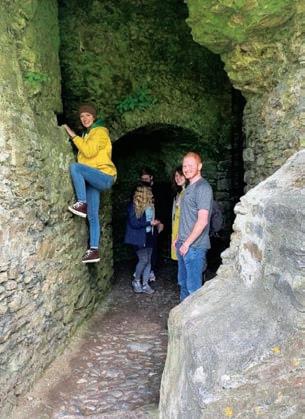
MYLES FRIEDMAN: Honors students in Ireland make a stop along the ring of Kerry. and escape from the dungeon of Blarney Castle.
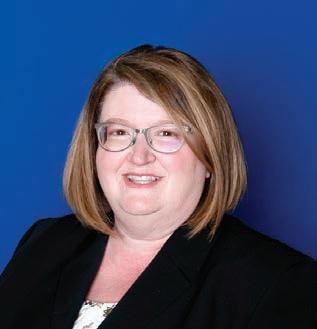
IT’S A MOUTHFUL, but the Arkansas Small Business and Technology Development Center, partnered with the University of Arkansas - Fort Smith, already has impacted the local economy.
“The economic impact of the ASBTDC in the River Valley for all of 2021 was about $1.3 million,” Bill Sabo, the center’s regional director, said. “So far this year (August 2022), it’s been $6.4 million, and I think there be a couple more before the end of the year.”
The ASBTDC, with funding from the US Small Business Administration, works with small businesses from inception to reinventing and everything in between.
“A misconception people have is that we work only on startups. We work with every kind of business imaginable. You could have a dream you want to explore, or you are looking to add a second location, or you need capital to add new machinery; we’ll work with you,” Sabo said.
In early 2021, UAFS announced that it received a $78,000 grant to launch the newest ASBTDC regional office, in Fort Smith. Statewide, regional offices partnered with colleges and universities to offer confidential, free services to businesses with 500 or fewer employees. Sabo said the center is the brain child of Dr. Latisha Settlage, Dean of the College of Business & Industry. She said that was giving her too much credit, but she acknowledged her input. Settlage “It is true that I took the lead when the state ASBTDC office in Little Rock approached UAFS with the opportunity to submit a proposal for a new center. The state office wanted to expand its footprint by opening some new offices around the state, and they identified Fort Smith as a possibility,” she said.
“At the time, the Bakery project was just picking up steam. Senior leadership had decided that both the Center for Business and Professional Development and Family Enterprise Center would be located there. I saw the addition of an ASBTDC office as a natural extension of our regional economic development goals.”
Both Settlage and Sabo credit the vision of UAFS Chancellor, Dr. Terisa Riley, with adding impetus for the project. It was Riley who, while touring the UAFS part of the Bakery space, saw the unclaimed area and said, “I want it all.”
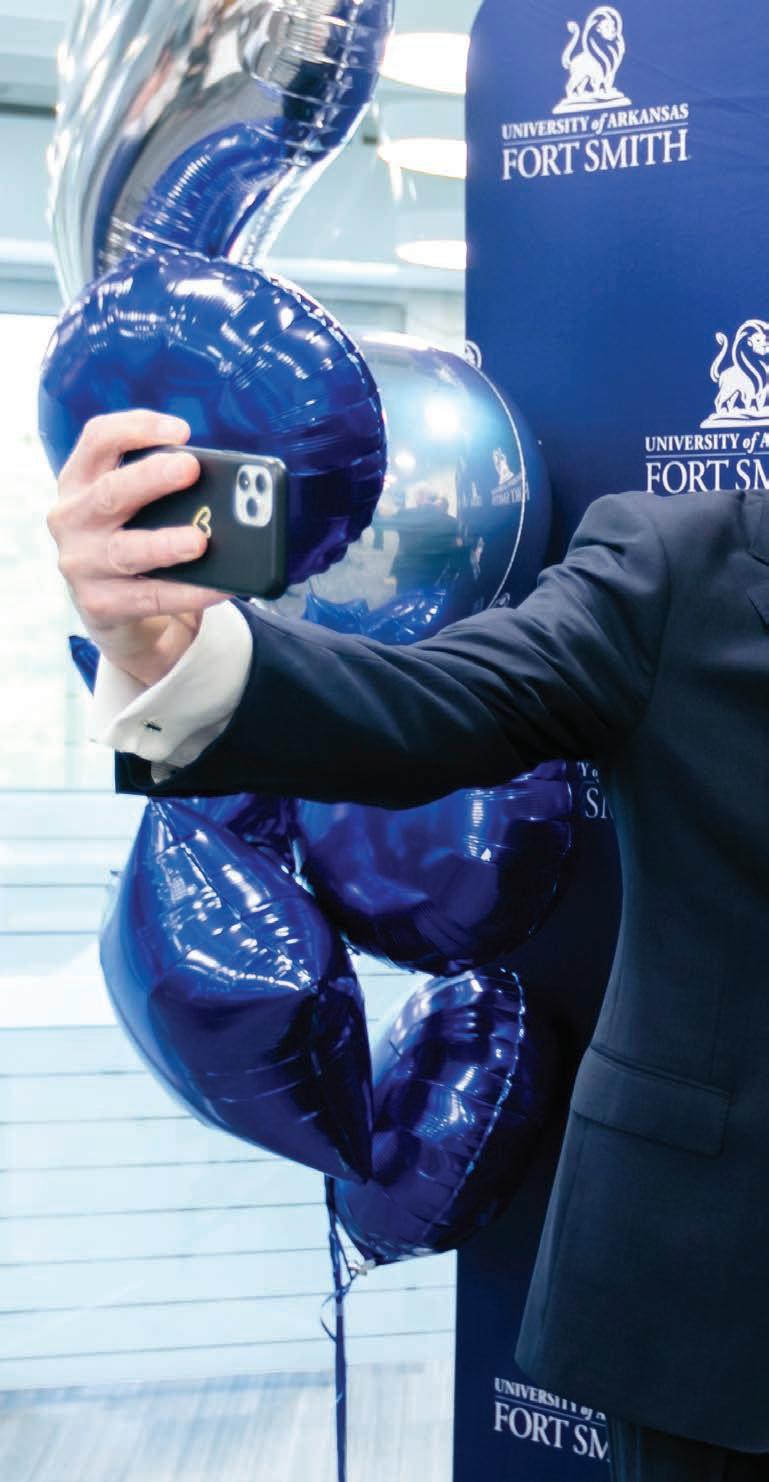
CELEBRATION: Arkansas Gov. Asa Hutchinson takes a selfie with UAFS Chancellor Dr. Terisa Riley and Kendall Ross, executive director of the UAFS Center for Economic Development.
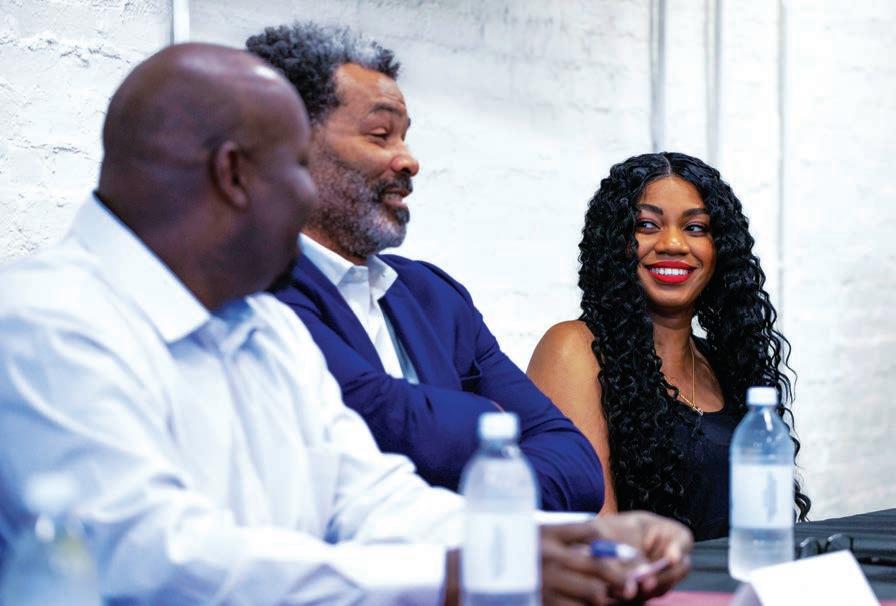
Sabo thinks the location is ideal.
“It’s a game-changer,” he said. “It’s off-campus. It’s less intimidating. Nobody will see you, and there’s plenty of parking. We will offer 16 workshops and panel discussions in this space this year.”
The time is right, too, he said.
Sabo believes entrepreneurship is now the way to spur economic development. Later this year, he will have Entrepreneurial Development Professional certification. “Professionals with this certification basically help to create an infrastructure for cities to make entrepreneurs successful,” he said.
“The ASBTDC office allows us the opportunity to support every business regardless of its stage of development,” Settlage said. “Aspiring entrepreneurs and small businesses can find support within the ASBTDC to help with concept development, market research, and financial planning.”
Added to one-on-one help, the center offers workshops and panel discussions. A panel of women in business got stand-
PANELS: The ASBTDC schedules panel discussions to offer insights into the challenges small businesses faces. Panels dedicated to women entrepreneurs, minority business owners, and hispanic owners – in Spanish – have drawn good participation.
out reviews. A panel of Hispanic business people, conducted in Spanish, was well attended.
Already the center has begun to integrate UAFS business business faculty into programs. A recent one-hour accounting session was well received if frightening to some of the new and would-be new business owners, he said with a laugh.
Sabo speculated about the next step for the ASBTDC.
“There is so much expertise here, not just in the business faculty. Someone might do a session on design with an easy program like Canva,” Sabo said.
“What I am hoping to see in the next few years is that business majors and graphic design majors would work with us in their final year of school and have the resources to start a business by the end of the year. I’ve already had three students who have become entrepreneurs.”
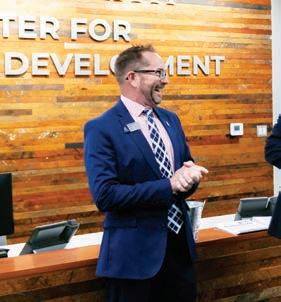
“The Center for Economic Development is excited to have the Arkansas Small Business and Technology Development Center located at the Bakery District. The ASBTDC bridges the gap between UAFS and the local community and creates incredible value for small businesses across the region. The added value created by strategically locating this office with the Family Enterprise Center and The Center for Business and Professional Development has been phenomenal. —KENDALL ROSS, EXECUTIVE DIRECTOR OF THE CENTER FOR ECONOMIC DEVELOPMENT ”
Small Businesses With Big Ambitions
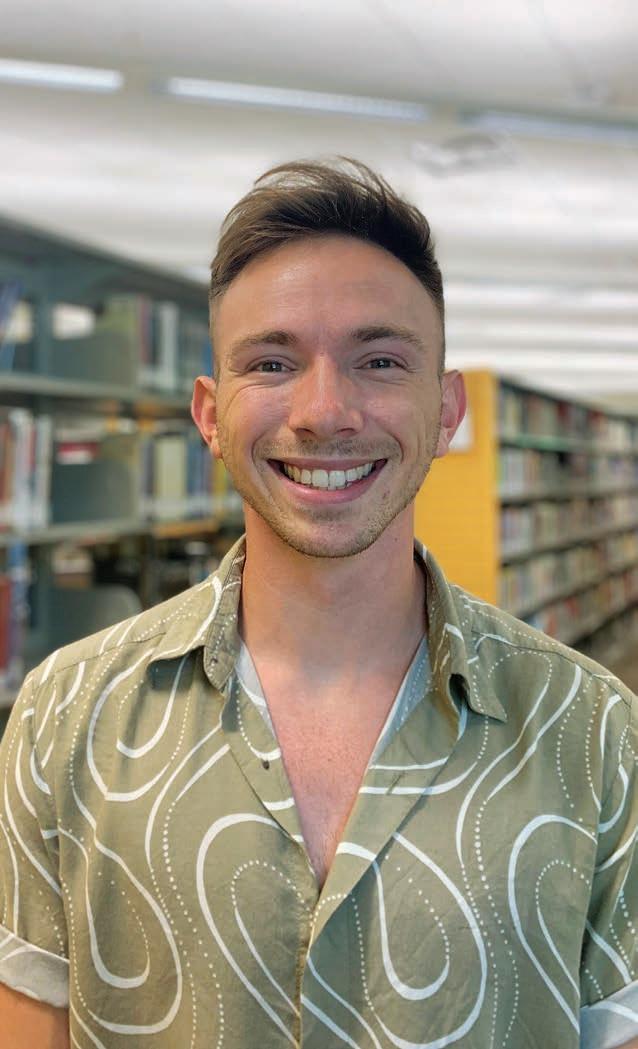
Although the director of The Arkansas Small Business and Technology Development Center in western Arkansas emphasizes that the center is not just for startups, he clearly has a soft spot for watching the process from idea to execution
Bill Sabo said his role is to be one part cheerleader and one part challenger.
“There are a lot of hurdles to opening a business, and you are going to hear a lot of nos,” he said.
When people come in with a new idea, he ensures they have done – or will do – their homework.
He pushes them to identify their customer (spoiler: it’s not everyone), their geographic area (It’s not everywhere), and how much capital they would need to get started (It’s not a wide-eyed stare).
The best ideas are ones that answer a need in the community. Sabo shared two stories of would-be entrepreneurs trying to fi nd their way.
Faith Myers, class of 2019, said after she lost a great deal of weight, she couldn’t a safe fi tness center for people fi ghting obesity.
“Because of that, I am working to open New Me Fitness,” Myers said. “It is designed for those who are on a weight-loss journey with or without the help of weight-loss surgery. I have begun to incorporate walk/run clinics to help with building my revenue to get the building I am considering for my gym.”
“I feel like this gave me a second chance at life, and I want to share that with everyone who needs it,” she said.
Collin Whittington likes to go camping in his car, and he was looking for something to make that easier, maybe more effi cient, defi nitely more comfortable. When he looked for conversion kits, they were all $4,000-$5,000. Instead of that, he built his own platform for a fraction of the cost.
“His next step is grassroots,” Sabo said. “He needs to show it off and maybe start some buzz. Maybe he will go to cycling events, showing off his product and talking about it, getting responses that will help him on his next prototype. In the meantime, he has a line on a third party to manufacture the product.”
Once people answer those questions and show they have skin in the game, they can start. Along the way, staff at the ASBTDC encourage when spirits lag and offer a big dose of reality when clients have unrealistic ideas. “Once I had a client who wanted to take a break and go on vacation. I told him, ‘You can have a business, or you can go on vacation, but you can’t do both.’” Ultimately the client chose the business and later FAITH MYERS thanked Sabo, he said.
Sabo often has to tamp down expectations. “You should work to get your fi rst location started before you think about opening more sites,” he said.
When an idea begins to take shape, practical challenges arise. Creating a limited liability company (LLC) or another type of company requires mountains of paperwork.
“I probably walk 75 percent of people through this step,” Sabo said. “It’s not hard, but the website is confusing.”
Sabo wants to make things easier for young entrepreneurs.
“When you are young and energetic, you might have a dream. But you need money to follow your dream, so you take a job. Then you look up and realize 25 years have passed,” he said.” I’d like to see people go from academia to business in one step.”
Sabo may be living his own dream.
“It’s heartening,” he said. “People have dreams, and watching them fulfi ll their dreams – it’s satisfying.”
